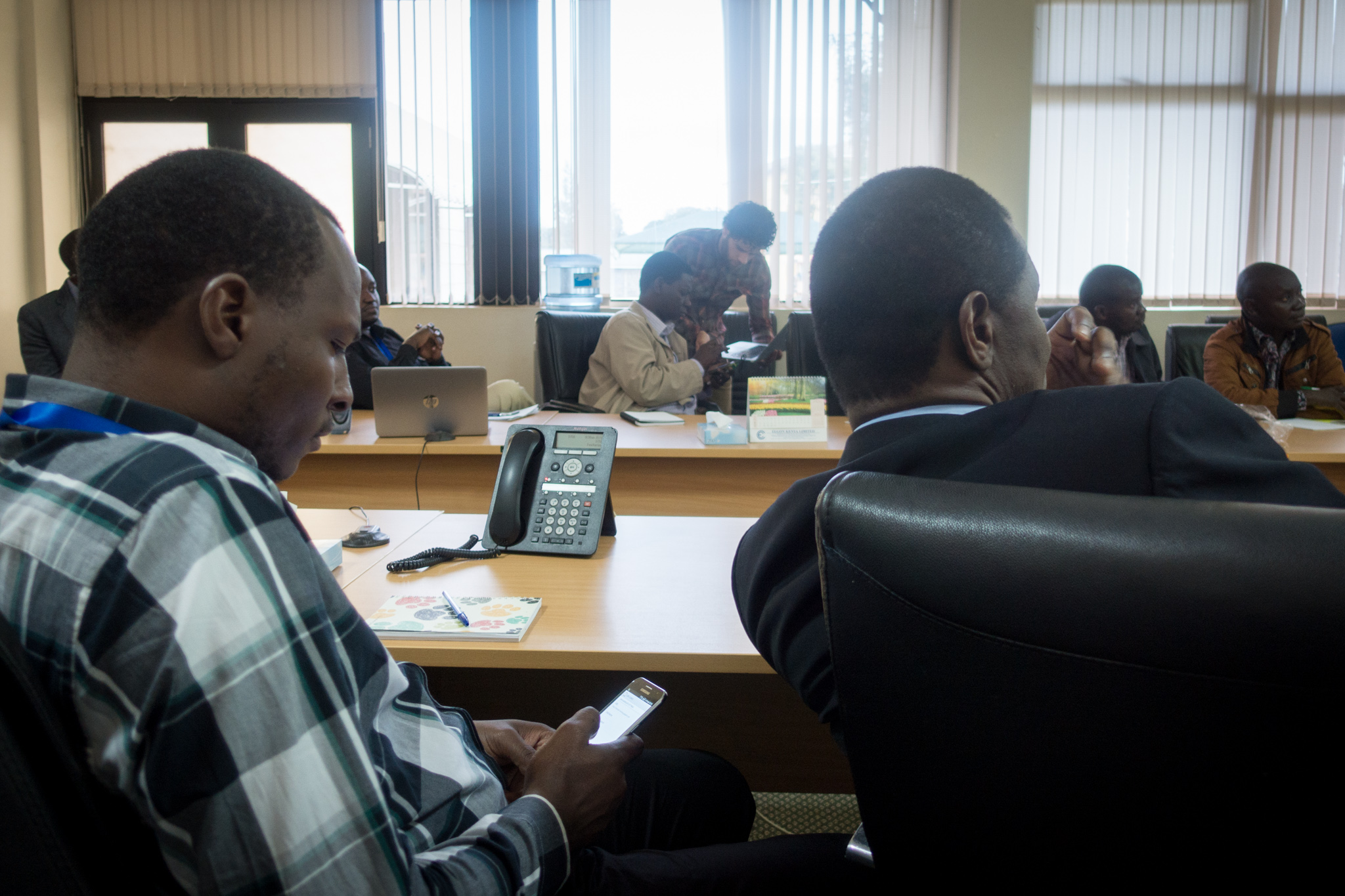Frank Chege is the head of monitoring and evaluation (M&E) at the African Agricultural Technology Foundation. He has advised and supported M&E activities for a portfolio of 10 projects in 13 African countries, covering the access, adoption and deployment of appropriate agricultural technologies. In this guest post, he describes how Nafundi's training and tools have helped AATF's monitoring and evaluation efforts.
The African Agricultural Technology Foundation (AATF) is a not‐for‐profit organization headquartered in Nairobi that facilitates and promotes public/private partnerships to access, develop, adapt and deliver appropriate agricultural technologies for use by resource‐poor smallholder farmers in Sub‐Saharan Africa.
AATF wishes to have accurate and quality data on the impact of its flagship projects with respect to our contribution to improved livelihoods among smallholder farm households in the areas we operate. Such data was determined to be crucial for our own internal learning and external reporting, and to support justification of the critical role that AATF continues to play in the agricultural development arena in Africa.
AATF thus decided to adopt the use of mobile-based technologies for data collection across its projects in order to enhance the efficiency and integrity of this process in monitoring implementation and evaluating progress/impact of our initiatives in Sub Saharan Africa.
I was introduced to the ODK suite of tools during a hackathon organized by Nafundi and the Bill & Melinda Gates Foundation in Nairobi in October 2015. As a result of interaction with the Nafundi team and other ODK community members at this function, I managed to win the support of AATF's management for the adoption of ODK for data collection across all projects.
In the last quarter of 2015, we set out to look for professional technical support in the piloting and eventual adoption of the ODK tools to achieve the objectives above. Terms of reference were developed, and interested companies were invited to bid for the task. At the end of a competitive process, the Nafundi team were selected to provide technical support.
 Nafundi leads a form design training at AATF headquarters in Nairobi, Kenya.
Nafundi leads a form design training at AATF headquarters in Nairobi, Kenya.
The Nafundi team led by Yaw Anokwa came on board at the end of the year, and spent the better part of 2016 supporting the setting up of an on-site server, translating all our major data collection forms to ODK-friendly formats, and training all key staff on the use of the various ODK tools.
This has enabled us to successfully pilot the use of ODK for our main projects in Kenya, as we slowly roll out across all other projects and countries where we work. The Nafundi team has also been on hand to provide one-on-one training to all our project officers, the ICT and monitoring and evaluation officers. This has greatly enhanced buy-in and support for the technology, and they continue to provide technical support as the team continues to learn.
In early 2018, polio virus was detected in the sewers of Mogadishu, Somalia and the government moved quickly to vaccinate the country's children in order to prevent a potential outbreak. A vaccination campaign targeting more than 726,000 children was launched in the Banadir and Lower and Middle Shabelle regions. The campaign was carried out by some 3,500 staffers and Nafundi assisted by enabling real-time tracking of vaccination coverage using ODK. Read more.
Fayaz Jatoi is the Coordinator of the Emergency Operations Centre (EOC) for Polio Eradication in Sindh, Pakistan. In this guest post, Fayaz describes why AFP surveillance is critical to polio eradication and how an SMS-based reporting system for private care provider helps. Read more.
This position has been filled. Thanks to everyone who applied! Read more.